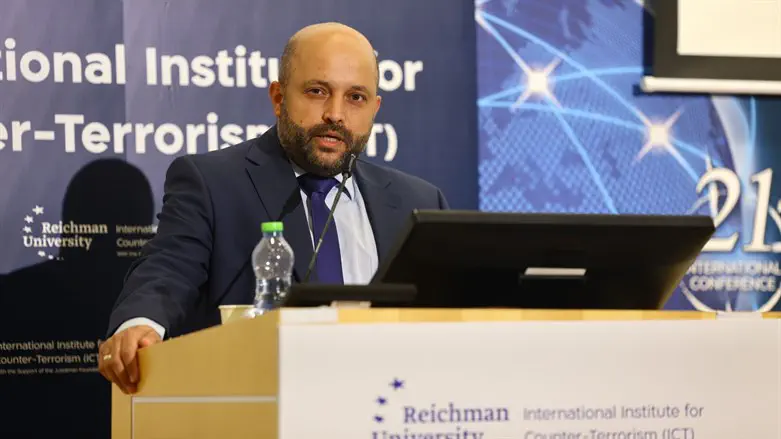
Eyal Hulata is a man to whom Israeli decision makers listen - attentively. He has a distinguished history in the Mossad and is, today, Israel’s top National Security Advisor.
Therefore, his assessment was listened to at the 21st World Summit on Counter-Terrorism held at ICT Herzliya in September with close attention. Here are some of the highlights:
Without our technological advantage and its associated industries, Israel would not be able to maintain its unique strategic advantage.
Israel needs to be prepared for all threats, to identify them, and neutralize them.
Israel has many advantages that are getting stronger. Our relationship with the United States is important. Recently, President Biden signed the Jerusalem Agreement that shows the strong connection, even when we don’t see eye to eye.
The importance of the Abraham Accords is not only to expand them but also to strengthen the existing agreements.
Israel joining CENTCOM, the US military Central Command, is a uniquely important cooperation in defense and security in the region.
Israel’s deterrence against escalation is vitally important. There are now significant constraints that our enemies are facing but we need to look reality in the eye and prepare for the future.
It is clear that Iran is approaching nuclear threshold status. There are terror threats in the countries and entities that surround Israel. The inability of the Palestinian Authority to control the territory they administer. Nasrallah’s Hezbollah threats are increasing. And we have domestic challenges.
Iran is the top and key challenge. Israel insists that Iran will not have a nuclear weapon. This is also a top topic with other countries. Iran is not rushing to a deal even though they could get more concessions, but Israel’s position is “Enough is enough!” The deal will not improve Israel’s security. We don’t object to agreements, but they should be longer and stronger. Iran doesn’t volunteer to give up anything. Only if they are in a corner will they make concessions. We have made our thoughts clear to the US Administration and we see results as a response to our viewpoints. Israel will maintain freedom of action, and this was included in the Jerusalem Accord that President Biden signed.
Iran will enhance their proxies against us and to create public opinion against us. When rockets were launched from Yemen to Abu Dhabi and Saudi Arabia, physically it was done by the Houthis, but it was actually Iran’s finger on the trigger.
Israel extends its hand to our new allies in the Abraham Accords with security and intelligence.
Iran uses its tools against us, against the West, against Israel’s neighbors in the region, and even against its own people. We say to our partners that Iran should pay a price for this. You can’t have a terror list without listing the greatest terror regime in the world.
It is just before the Jewish holy days and Israel’s elections, and we are using our resources to reduce the threat of violence and terror. We are interested in the Palestinian Authority's maintaining security and quiet in the territories under its control. In a week which saw a senior officer killed we saw the dilemma clearly, but we want quiet and calm.
We completed Operation Breaking Dawn on time, thanks to the assistance of Egypt.
In the north, we are coping with Nasrallah’s threats. Lebanon’s economy is unstable. Israel wants a stable Lebanon. It is as much in our interest as it is in theirs. We want to come to an agreement with them and we don’t want Nasrallah to interfere with the Karish natural energy rig. When complete, we will supply energy to Egypt and to Europe.
We are reducing crime and terror in Israel’s Arab society. It is as much in the Arab interest as it is our own.
Israel did not change its policy on the Temple Mount. We still protect freedom of worship and freedom of movement.
We are outing content into our agreements with our Abraham Accord partners and our existing Arab peace partners. We are working with our Arab partners to bring added water resources and an industrial zone to Jordan. We have secure flights to Sharm in Egypt and to the Gulf and beyond. Hopefully, in the future, to Saudi Arabia.
We face many opportunities. Israel’s strategic balance is mixed but we will continue to maximize our situation.
Barry Shaw is International Public Diplomacy Director,at the Israel Institute for Strategic Studies.